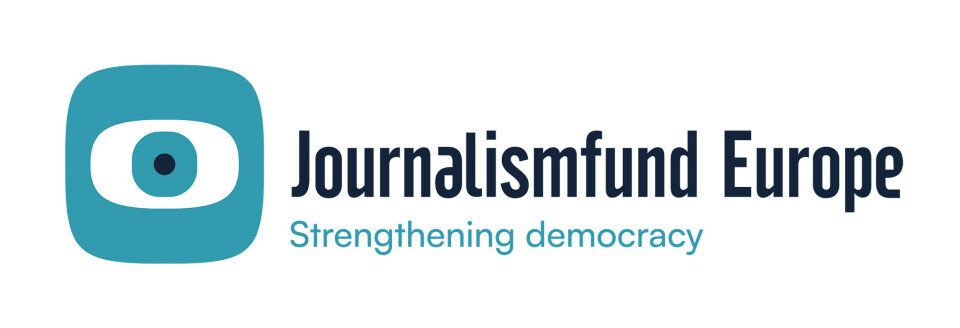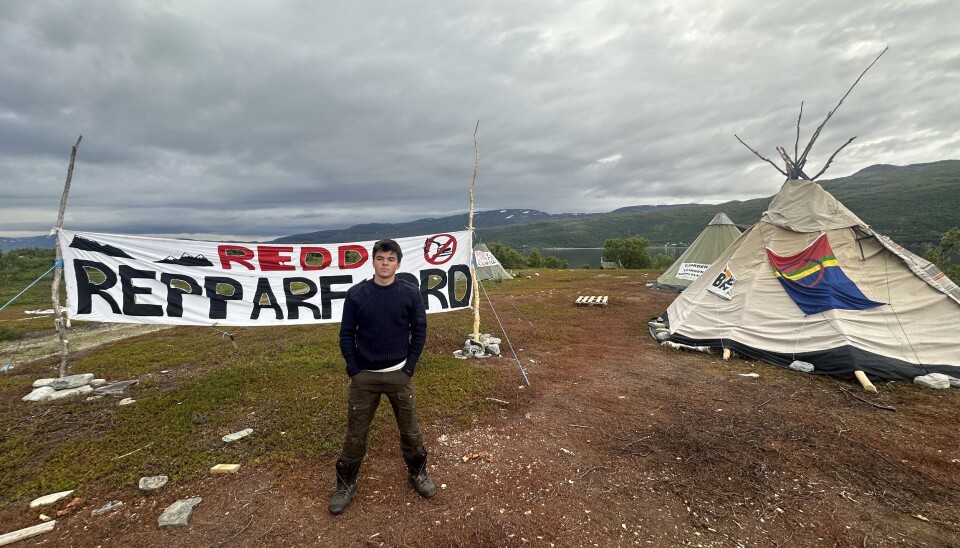
The mineral conflict in the high north
Europe’s demand for critical minerals and metals is growing while Sámi reindeer herders in Norway and Sweden defend their territories and cultural traditions. European energy security and indigenous rights are at stake, and unresolved disputes risk escalating conflicts.
Isak Greger Eriksen steps out of the Sámi lávvu at the activist camp near Repparfjord in the small village of Kvalsund in northernmost Finnmark county. Not far from the camp, the copper mine Nussir is expected to start operations latest by 2027. The metal is essential for solar panels, electric vehicles, and power grids.
The smell of smoke lingers in Isak’s woollen sweater, which he wears as protection from biting midges and Arctic summer winds. The 17-year-old regional leader of Norway’s biggest eco-organisation, Nature and Youth, gazes across the Repparfjord where Nussir was granted permission to deposit mining waste.
I’m first and foremost here to fight for the environment, but I recently learned I’m Sámi and I’m trying to reconnect with my heritage, he says.
Nussir was designated strategic project status within the Critical Raw Materials Act in March. The status fast-tracks bureaucracy and, more importantly for Nussir which already has its permits in place, adds legitimacy and opens up financial doors.
While Norwegian authorities, the mining company and local politicians in Hammerfest municipality welcome the mine as a source of jobs and opportunities in the declining community, the activists are raising their voices. They are fighting for the nationally recognised salmon fjord, Sea Sámi fishing traditions, and reindeer husbandry culture.
The project has been halted before. When construction resumed in June, protests ignited once again. Several activists have been arrested and fined, but the resistance continues with the latest occupation of the working site taking place last Saturday.
"As environmentalists we support a green transition, but we don’t want it to happen at the expense of human rights, indigenous rights and nature. So we put our foot down," says Eriksen.
With the support of local reindeer herders, members of the Sámi parliament and Sámi activists, the environmentalists are prepared - and determined - to keep up the pressure both locally and globally for a long time, asking followers on social media to engage.
Multiple pressure on reindeer grazeland
To the local reindeer herders, the planned mine is seen as an existential threat, says Nils Utsi, leader of the affected reindeer herding community Fiettar.
He says the reindeer herders reject discussions with the mining company Blue Moon Metals, formerly Nussir ASA as the reindeer area is already under pressure due to previous interventions such as wind parks, power grids and roads. And now Fiettar’s calving grounds are threatened.
“If someone comes uninvited to your home, then you ask them to leave”, says Nils Utsi.
"If we lose the calving grounds, we lose the very basis for continuing reindeer husbandry. This is not something we could simply negotiate over. It would be almost like negotiating with life as collateral, and I don’t think that’s a good solution," he adds.
What do you think about the need for a green transition?
"You can’t restore the Earth by destroying it. The only real option is to do something about our consumption. Do we really need to have three or four phones?"
Whereas Utsi criticise the political and bureaucratic approval process, claiming reindeer herders weren’t consulted as the law requires, Nussir’s CEO Øystein Rushfeldt says dialogue has been extensive, all permits have been issued after years of evaluation and that there is no reason to stop the construction work.
"It would be unreasonable to stop work based on an opinion. If it were to be stopped because something is wrong, that would be understandable. We have gone the whole long way over 15 years with many meetings with the reindeer herders."
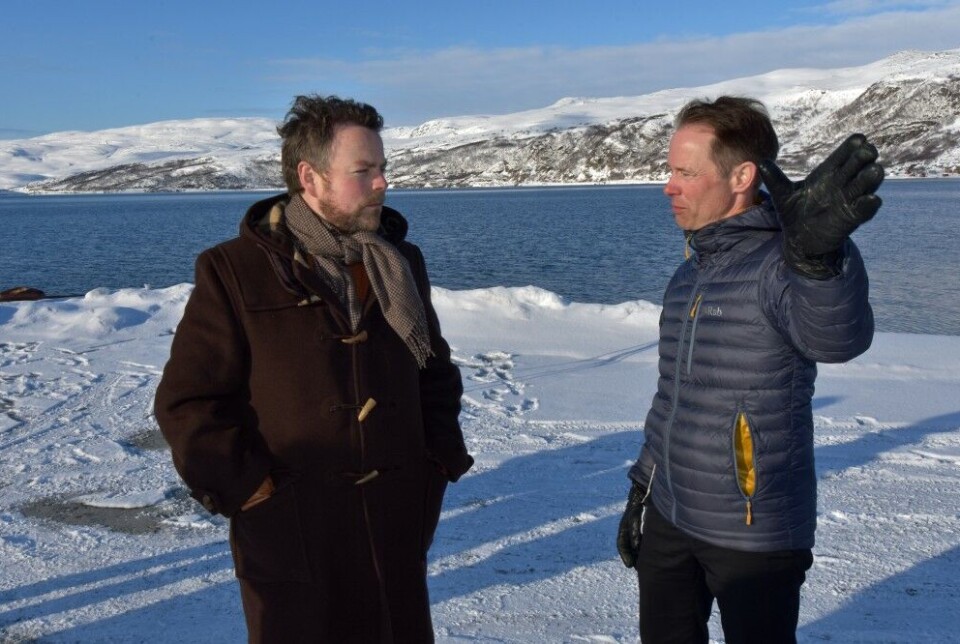
Rushfeldt argues there’s no alternative to boosting extraction if Europe wants to hit its climate targets, and he claims those targets will slip away if mining projects keep getting blocked by special interests.
"It’s good people can say no to mining, but in reality we can’t. In reality, it’s about how skilled we are at balancing the need to reduce the climate impact against environmental damage. In transitioning, you’re going to have to break some eggs. And then the question is: Is it worth it? And what are we willing to accept? That’s the real debate society should be focusing on," Rushfeldt makes clear.
In hindsight, do you think Nussir could have done anything differently to avoid today’s conflict with the reindeer herders?
"We have done everything we can, changed parts of the project to minimize the impact to almost no land use, and we have been available to Fiettar throughout all these 15 years. Our door remains open despite many attacks against us, which we sometimes feel are unjust," Rusfeldt claims.
He adds that Fiettar has visited the industrial site twice in the past weeks.
"So we can hope that dialogue may emerge. We’ll see."
Frustration and resistance in Kiruna
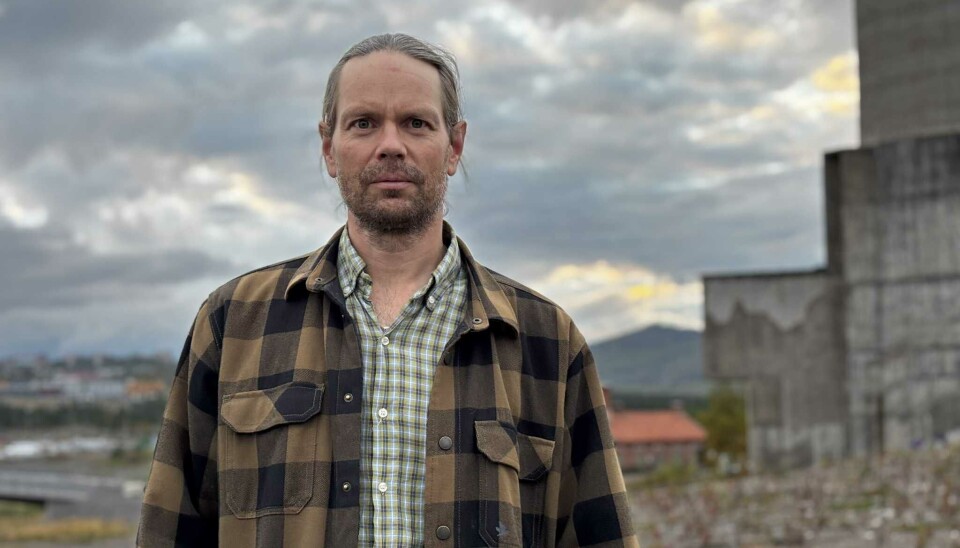
About 300 kilometers south of Repparfjord, another disputed mining project with strategic EU status is planned: the Per Geijer deposit in Kiruna, which is set to supply Europe with iron ore, phosphorus and, most importantly, rare earth elements.
Current mining operations are already impacting local life as forecasts of ground deformations force the gradual relocation of the city center and 12,000 residents. In August the 113-year old church was relocated in one piece.
Now, the Per Geijer deposit located a few kilometres north of Kiruna, threatens local Sámi community Gabna, whose lands would be split in two, making migration paths between important pastures inaccessible.
Gabna’s representative, Lars-Marcus Kuhmunen, answers the phone while picking up his daughter at Kiruna Airport. He lets out a weary sigh when asked how the Per Geijer mine affects the future of reindeer herding.
"I’m not very open with my daughter about the challenges reindeer herding faces in our community. I choose to focus on the positive aspects, showing reindeer herding has a future and is a heritage they can pass on. That puts a lot on my shoulders. You have to keep fighting."
Despite a cooperation agreement signed between LKAB and Gabna, Kuhmunen experiences a power imbalance.
"The agreement doesn’t give us a real say in anything. Our problems are not being addressed and compensation isn’t enough to cover both attendance and the preparatory work for all these meetings, which only serve LKAB’s interests," he claims.
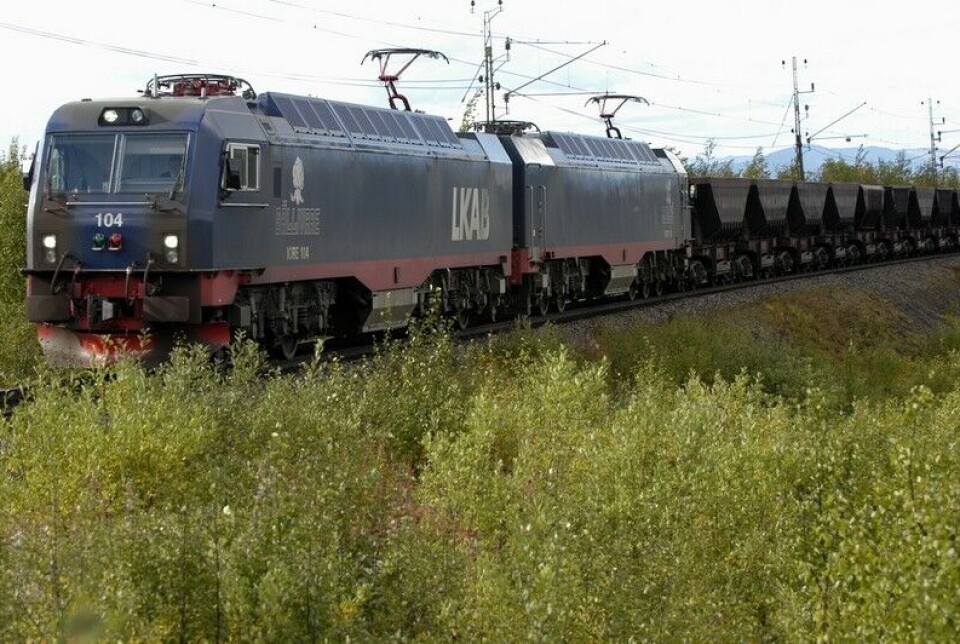
Such agreements have become common practice between companies and herding communities in Sweden. These are kept private under a secrecy clause.
For the reindeer herders, Per Geijer’s strategic status is a concern as it enables fast-tracking and could see all permits approved within 27 months.
"We are sure the project will impose human rights violations on us, but given the fast-tracking, I fear there won’t be time for a proper assessment to prove this, says Kuhmunen."
Director of sustainability, Pia Lindström, responds via email that LKAB is aware of the risks.
“At this early stage, we see a risk that human rights may be violated if no measures are taken. The investigation into what actions are needed is ongoing and will form the basis for the human rights assessment that will be prepared.”
As part of the permitting process for Per Geijer, LKAB must apply for an environmental permit. When that will happen is still unclear, but Kuhmunen is already worried about how the case will be handled in the Land and Environment Court. He doesn’t believe an accurate picture of the situation will be presented.
"I dread this so incredibly much. I’ll be sitting in court for maybe a month because of this gigantic mine. I’ll be there every day listening to different experts claiming reindeer herding isn’t affected."
Turning to the courts
At the same time, reindeer herders’ sense of lacking influence in permit processes reflects a broader challenge facing the Nordic governments in their bid to become Europe’s leading suppliers of critical minerals and metals: Sámi groups, whose rights are enshrined nationally and internationally, are not only calling for protests, but are increasingly expected to turn to the courts.
"We have issued complaints to the municipality. But if no one listens to our demands, we have no choice but to try and stop Nussir in the courts," Nils Utsi, member of Fiettar in Kvalsund says.
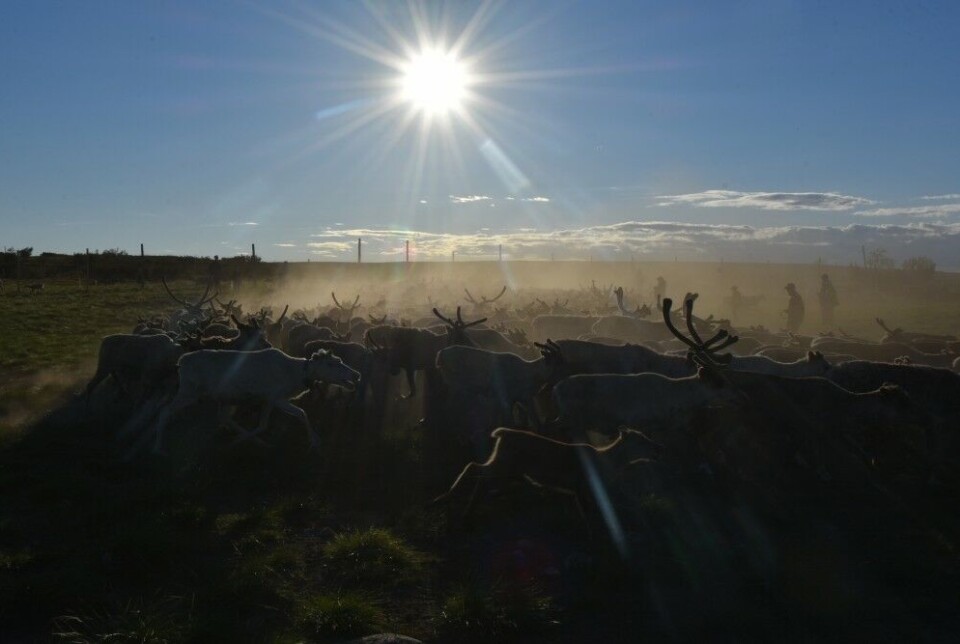
Torvald Falch, special advisor at the Norwegian Sámi Parliament anticipates more legal disputes in Norway as the EU’s minerals law, in addition to climate change and other industries, increases pressure on the land.
"There haven’t been that many conflicts between industrial development and reindeer husbandry over the 2000s. But due to the political and industrial push for more mines, combined with the strengthening of Indigenous policy both nationally and internationally, we can expect more court cases."
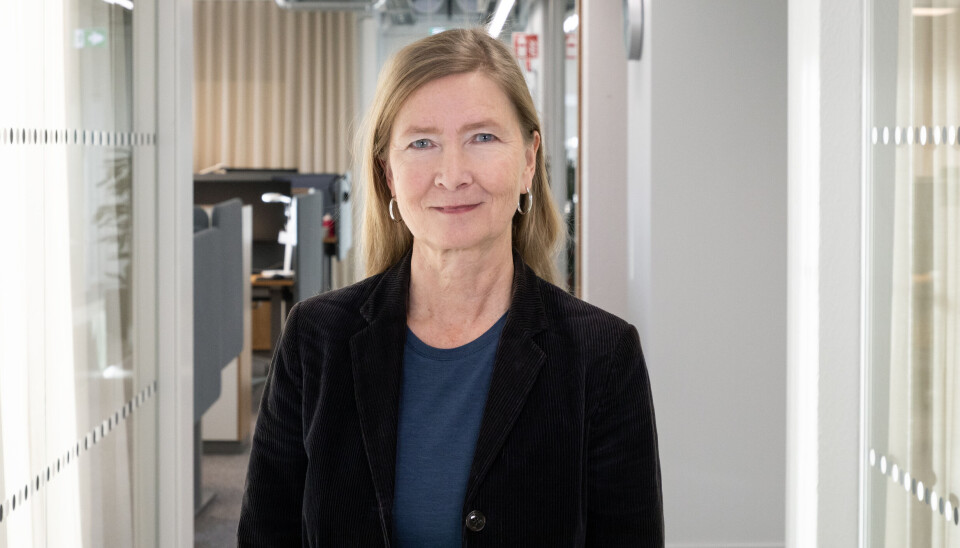
In Sweden, court proceedings are already becoming a more common tool for Sámi villages to defend traditional land use against interventions, says Brittis Edman, analyst at the Institute for Human Rights.
She points to Sweden’s Girjas ruling and Norway’s Fosen case as important milestones in the legal development.
In 2020, the Swedish Supreme Court granted the reindeer community Girjas in Norrbotten exclusive control over hunting and fishing rights in their area. The rights previously fell under state-control. As a result, four other Sámi villages are now suing the government on similar grounds.
In 2021, Norway’s Supreme Court ruled that two wind farms built on the Fosen peninsula in Trøndelag violated reindeer herders’ rights under international law, posing an important legal precedent. An agreement was eventually reached: the two affected reindeer herding districts are to be compensated €700.000 each year for over 25 years, with additional land and veto rights granted on future operations.
Sámi land use conflicts are part of a longer history, says Kaisa Syrjänen Schaal, lawyer and head of the Sámi Truth Commission, set up by the Swedish government to investigate and document historical injustices against Sámi.
"Sweden has been criticised by international bodies like the UN for the way indigenous rights are not respected well enough. They can't just take their reindeer somewhere else."
A worried environmentalist
The opposition to mining projects worries one of Norway's veteran environmentalists, now mineral specialist and board member at mineral developing company Grangex, Bård Bergfald.
While stressing that most Norwegian mining projects are conflict-free, he argues the resistance from some mainly environmental organisations, and to a lesser extent Sámi groups, is getting in the way of much larger issues at stake.
"We are in the middle of both a climate crisis and a defense crisis. Today's debate is far too focused on the Indigenous perspective. All relevant parties must be heard and respected, but no single party may have monopoly on decisions in a democracy," Bergfald argues.
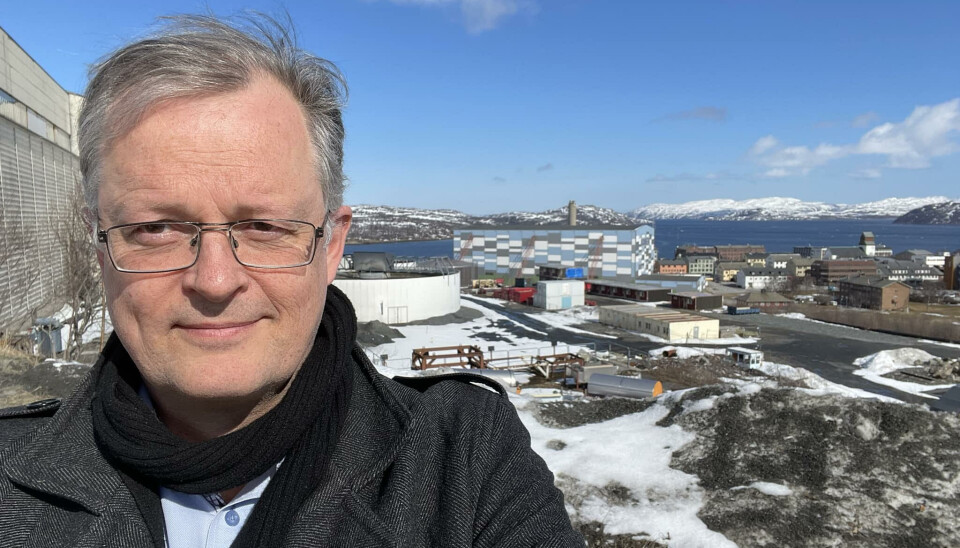
Bergfald underscores that mines must be developed considerately and in dialogue with all stakeholders. The location however, is not a matter of choice.
"The energy transition is the transformation of society from an economy based on fossil carbon to an economy based on metals. Metals must be mined, and mines can only be developed where the minerals are located. Only a few copper resources in Norway aren’t located on Sámi land."
EU dependencies: a security issue
The Critical Raw Materials Act seeks to ensure the EU has a secure, sustainable, and resilient supply of critical raw materials needed for defense tech, the green transition and digitalisation. By 2030, at least 10% of critical raw materials should be mined within the EU, 40% refined, and 25% recycled. Another key provision limits dependency by capping imports of any strategic raw material from a single third country at 65%.
Europe has become increasingly aware of the risks of depending on critical minerals from hostile countries such as China. Whoever controls extraction and processing can restrict supply and use trade as leverage - something Beijing has already done.
"Due to the geopolitical situation, all the supply lines are tightening and we can lose access to rare metals fast, with great consequences for European industrial capacity and the modernisation of the continent's energy production," Bård Bergfald says.
One of the rare earths needed for electrical vehicles is neodymium. If Per Geijer is put in production, Europe has enough to convert all cars, buses and trucks, Bergfald explains.
But in April China restricted export on the important metal with consequences for Europe.
"Car factories in the West are reducing output as they can’t get hold of neodymium, meaning a return to oil driven cars. That is not a good solution," Bergfald continues.
Per Geijer can also produce a significant part of the EU’s needed phosphate, of which 12 million tons are currently imported from Russia and Morocco to grow European crops.
"If those imported volumes are blocked by Russia and Morocco - what shall Europe do? Stop eating?"
However, meeting the self-sufficiency target of 10% domestic mines remains a challenge, according to Bergfald.
"European production today is just under 2%. That means a fivefold increase in total production in only five years. This obviously means more mining activity. When you see how difficult it is, and the kind of costly and drawn-out conflicts the mines are involved in, it is quite demanding."
On the government level the security aspect is underscored.
"Europe must become self-sufficient when it comes to minerals. It is also a security issue," says Andreas M. Kravik, Norway’s State secretary of the Ministry of Foreign Affairs.
The question of how to recognise the needs for mines and a thriving reindeer herding culture is however not easy.
"Norway promotes and adheres to international indigenous rights, but at the same time this is a difficult question," Kravik adds.
The costs of fast-tracking
The speed of the EU’s strategic projects is being questioned by scholars. One of them is senior researcher Annette Löf at Stockholm Environment Institute.
She argues fast-tracking the permitting process, means locals risk having a lesser say on projects that affect them, and less time to appeal, thus compromising democratic processes and responsibilities.
"Democratic decisions and processes must be allowed to take time," Löf states.
The transparency of the selection process of the strategic projects has also been criticised.
In July 2025, Euronews reported that European Parliament members Maria Ohisalo, Sara Matthieu, Majdouline Sbaï och Ana Miranda accused the EU Commission of withholding impact assessments of strategic projects, harming transparency and accountability.
The Gabna community claims it has also been denied access to information about the selection criteria for Per Geijer.
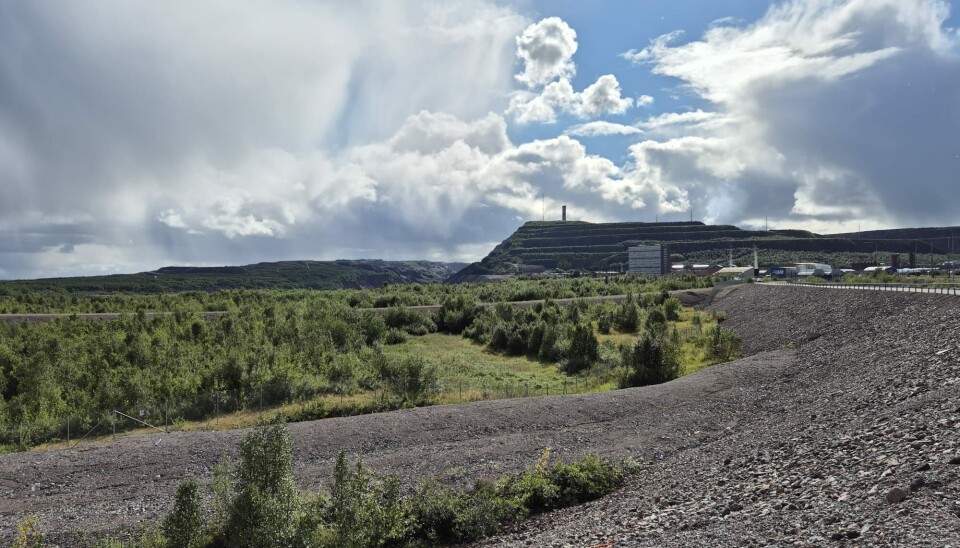
Löf also questions the cost of the minerals act.
"We will need these minerals for the green transition, but the question is to what extent and at what cost - and I don't really see that debate happening."
She argues the democratic engagement of indigenous groups will become increasingly important in overcoming these apparently insurmountable conflicts on a local scale, and ensuring the success of any future development projects in the Nordics.
The Mineral Act identifies and recognises a lot of geopolitical tensions, but does not treat internal conflicts, such as mining opposition in many parts of the EU, as ‘true’ conflicts that need addressing in a similar sense: these are rather seen as merely technical challenges, Löf continues.
"If this continues to be the case, this could potentially lead to further tension and conflicts on a larger scale - both between rights holders and states, but also between local communities and the EU level."
"Given this wider geopolitical context and potential violation of human rights, indigenous interests in Norway and Sweden cannot be left out of any discussion around European energy security," Löf concludes.
The Swedish Minister for Energy, Business and Industry, Ebba Busch Thor, was asked to comment on how the government intends to reconcile the demand for mining with Indigenous rights, but no reply was received.
--------------
This investigation was developed with the support of Journalismfund Europe.
